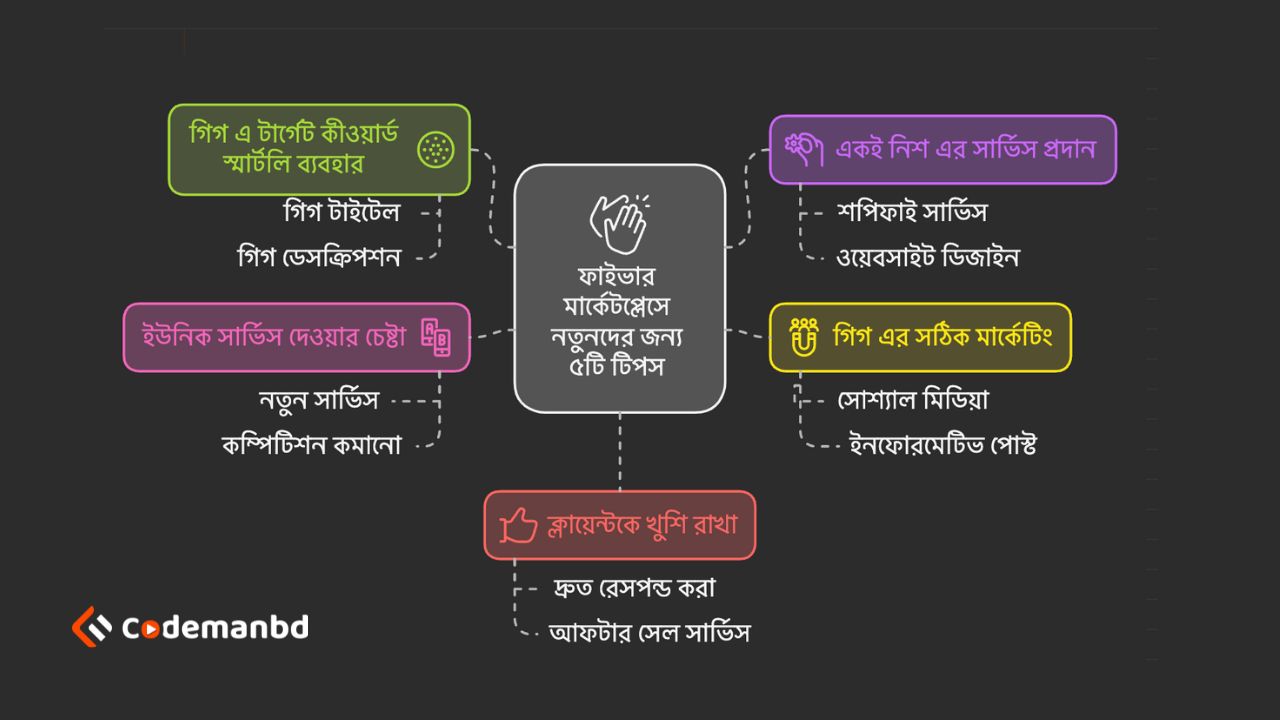

- Ethical Hacking
Key Concepts and Terminologies in Ethical Hacking
- By minhazulasif
Ethical hacking involves authorized attempts to breach computer systems to identify security vulnerabilities. It helps organizations protect sensitive data and improve cybersecurity.
Ethical hacking is a proactive approach to safeguarding digital assets. Ethical hackers, often called “white-hat hackers,” use their skills to find and fix security flaws before malicious hackers can exploit them. They conduct penetration testing, vulnerability assessments, and security audits.
These professionals follow legal and ethical guidelines to ensure their work benefits the organization. Ethical hacking is crucial for maintaining robust cybersecurity defenses with cyber threats constantly evolving. It provides peace of mind by identifying potential threats and weaknesses. Ethical hacking is essential to modern cybersecurity strategies, helping businesses stay ahead of cybercriminals.
History of Ethical Hacking

Ethical hacking, o penetration testing or white-hat hacking, plays a crucial role in cybersecurity. The practice involves authorized attempts to breach systems to find vulnerabilities before malicious hackers can exploit them. The history of ethical hacking is fascinating and demonstrates how the field has evolved to protect data and networks.
Origins Of Ethical Hacking
The concept of ethical hacking dates back to the 1960s. During this era, the United States government and military started exploring computer systems for security purposes. In the 1970s, the term “ethical hacking” began to gain traction. The first ethical hackers were part of the Advanced Research Projects Agency Network (ARPANET), the precursor to the internet. These pioneers aimed to secure military and government communications from potential threats.
In the 1980s, the rise of personal computers brought new challenges. Companies like IBM started to see the value in ethical hacking. They hired experts to test their systems and protect sensitive information. The creation of the Computer Fraud and Abuse Act (CFAA) in 1986 marked a significant milestone. This act made unauthorized access to computer systems illegal, but it also highlighted the importance of authorized security testing.
Evolution Over Time
The 1990s saw the commercialization of the internet. This led to an increase in cyber threats. Ethical hackers became more important than ever. During this period, organizations began to formalize their security practices. The Certified Information Systems Security Professional (CISSP) certification was introduced in 1994. This certification set standards for ethical hacking and cybersecurity professionals.
In the 2000s, the growth of e-commerce and social media platforms introduced new vulnerabilities. Ethical hackers played a crucial role in identifying and fixing these issues. The formation of the EC-Council in 2001 further professionalized the field. They introduced the Certified Ethical Hacker (CEH) certification, which became a benchmark for cybersecurity skills.
Today, ethical hacking is an integral part of cybersecurity. Companies conduct regular penetration tests to safeguard their data. Ethical hackers use advanced tools and techniques to stay ahead of threats. The field continues to evolve, adapting to new challenges in the digital landscape.
Key Concepts And Terminologies In Ethical Hacking
Ethical hacking involves testing and securing IT systems by identifying vulnerabilities before malicious hackers can exploit them. Understanding the key concepts and terminologies in ethical hacking is crucial for anyone venturing into this field. This section explores essential terms and ideas that every aspiring ethical hacker should know.
Common Types Of Ethical Hacking
Ethical hackers use various techniques to test system security. Here are some common types:
- Penetration Testing: Simulating attacks to find security weaknesses.
- Vulnerability Scanning: Identifying potential security gaps in systems.
- Social Engineering: Manipulating people to gain unauthorized access to information.
Important Ethical Hacking Tools
Ethical hackers rely on a range of tools to perform their tasks effectively. Some popular tools include:
| Tool Name | Description |
| Metasploit | A framework for developing and executing exploit code against a remote target. |
| Nmap | A network scanning tool used to discover hosts and services on a computer network. |
| Wireshark | A network protocol analyzer used to capture and interactively browse the traffic running on a computer network. |
Key Concepts In Ethical Hacking
Understanding these key concepts is vital for ethical hackers:
- Footprinting: Gathering information about a target system to find ways to infiltrate it.
- Enumeration: Extracting detailed information about a system, such as user names and shared resources.
- Exploitation: Taking advantage of vulnerabilities to gain unauthorized access to a system.
Critical Terminologies In Ethical Hacking
Familiarize yourself with these essential terminologies:
- Zero-Day Exploit: A vulnerability that is unknown to the software vendor and has no patch available.
- Black Hat: A hacker who violates computer security for malicious purposes.
- White Hat: An ethical hacker who uses their skills to improve security.
- Gray Hat: A hacker who straddles the line between ethical and unethical hacking.
Ethical Hacking Techniques

Ethical hacking involves finding and fixing security issues in systems. Ethical hackers use various techniques to test the security of networks, applications, and devices. These techniques help prevent cyber attacks and protect data. Let’s dive into some key ethical hacking techniques.
Vulnerability Assessment
Vulnerability Assessment identifies weaknesses in a system. This technique involves scanning networks, applications, and devices for known vulnerabilities. Ethical hackers use automated tools and manual methods to find these issues. Once identified, they document the findings and suggest fixes.
Common tools for vulnerability assessment include:
- Nessus
- OpenVAS
- QualysGuard
Vulnerability assessments help organizations prioritize and address security flaws. This proactive approach reduces the risk of cyber attacks.
Penetration Testing
Penetration Testing, or pen testing, simulates cyber attacks to test system defenses. Ethical hackers try to exploit vulnerabilities in a controlled manner. This helps organizations understand how attackers could breach their security.
Penetration testing includes:
- Planning and reconnaissance
- Scanning
- Gaining access
- Maintaining access
- Analysis and reporting
Penetration tests provide real-world insights into the effectiveness of security measures. They highlight areas that need improvement to strengthen defenses.
Social Engineering
Social Engineering targets human behavior to bypass security controls. Hackers use deception to trick individuals into revealing sensitive information. Common tactics include phishing, pretexting, and baiting.
Examples of social engineering attacks:
- Phishing emails that mimic legitimate sources
- Phone calls pretending to be tech support
- Leaving infected USB drives in public places
Social engineering exploits trust and human error. Training and awareness programs are essential to combat these types of attacks.
Tools Used In Ethical Hacking
Ethical hacking involves using various tools to test and secure networks and systems. These tools help ethical hackers find and fix vulnerabilities. Understanding the tools used in ethical hacking can help organizations stay safe from cyber threats.
Network Scanners
Network scanners are essential in ethical hacking. They help identify devices on a network and check for vulnerabilities. Nmap is a popular network scanner. It can discover hosts, services, and open ports. OpenVAS is another tool that performs advanced vulnerability scanning. These tools provide detailed reports to help fix security issues.
Password Cracking Tools
Password cracking tools help ethical hackers test the strength of passwords. John the Ripper is a well-known tool for this purpose. It can crack passwords using different methods like brute force and dictionary attacks. Hashcat is another powerful tool. It supports various algorithms and can run on GPUs for faster cracking. These tools ensure that passwords are strong and secure.
Packet Sniffers
Packet sniffers capture and analyze network traffic. Wireshark is the most popular packet sniffer. It allows ethical hackers to see data traveling across a network. Tcpdump is another useful tool. It provides a command-line interface for capturing packets. These tools help identify suspicious activity and potential security breaches.
Ethical Hacking Process
Ethical hacking involves authorized attempts to bypass system security to identify potential data breaches and threats. The ethical hacking process ensures that vulnerabilities are identified and fixed before malicious hackers exploit them. This process follows a structured methodology to ensure comprehensive security assessment.
Planning And Reconnaissance
During the planning and reconnaissance phase, ethical hackers gather information about the target system. They use both passive and active methods to collect data. This can include searching for public information, like domain names and IP addresses, and performing social engineering to gather insights from employees.
Scanning
In the scanning phase, hackers use tools to scan the target system for vulnerabilities. This involves network scanning to identify open ports and services. Vulnerability scanning helps in finding weak spots in applications and systems. Tools like Nmap and Nessus are popular in this phase.
Gaining Access
In the gaining access phase, ethical hackers exploit vulnerabilities found during scanning. They use various techniques, such as SQL injection, password cracking, and exploiting software bugs, to gain entry into the system. The goal is to assess how deep an attacker can penetrate.
Maintaining Access
During the maintaining access phase, hackers ensure they can return to the compromised system. They install backdoors or use rootkits. This step is crucial to understand how prolonged access could be maintained by a malicious hacker.
Analysis
In the analysis phase, ethical hackers document their findings. They provide detailed reports on vulnerabilities discovered and exploited, along with recommendations for fixing them. This helps organizations strengthen their security posture and prevent future attacks.
Ethical Hacking Certifications
Ethical hacking certifications validate a professional’s skills in identifying and fixing vulnerabilities in systems. These certifications are essential for anyone wanting to excel in cybersecurity. They provide a structured path for learning and ensure you stay updated with the latest security trends.
Certified Ethical Hacker (CEH)
The Certified Ethical Hacker (CEH) certification is one of the most recognized credentials in the cybersecurity industry. Offered by the EC-Council, it focuses on the techniques hackers use to penetrate network systems. The course covers footprinting, scanning, enumeration, and system hacking. It also includes social engineering, phishing, and malware threats. Candidates must pass a rigorous exam to earn this certification.
The CEH certification provides a deep understanding of ethical hacking phases and attack vectors. It emphasizes hands-on experience in a lab environment. Ideal for security officers, auditors, and network professionals, it ensures you can think like a hacker to protect your systems.
Offensive Security Certified Professional (OSCP)
The Offensive Security Certified Professional (OSCP) certification is known for its practical approach. Offered by Offensive Security, this certification requires candidates to demonstrate their ability to hack into a series of machines in a controlled environment. The exam is hands-on and tests your skills in exploit development, buffer overflows, and scripting.
OSCP is ideal for those who prefer a more hands-on approach to learning. It helps professionals build strong foundational skills in penetration testing and network security. The certification is highly valued by employers looking for skilled professionals who can tackle real-world cybersecurity challenges.
Ethical Hacking In Business
Ethical hacking, also known as penetration testing, helps protect businesses from cyber threats. Ethical hackers use their skills to find and fix security weaknesses. This practice is crucial for businesses that handle sensitive information. Ethical hacking in business ensures data safety and builds trust with customers.
Importance For Organizations
Organizations face numerous cyber threats daily. Hackers target businesses to steal data, disrupt services, or demand ransoms. Ethical hacking helps to identify these threats before they cause damage.
Protecting customer data is vital for any business. A data breach can lead to loss of customer trust and legal consequences. Ethical hackers find vulnerabilities and help secure customer information.
Compliance with regulations is another key aspect. Many industries have strict cybersecurity regulations. Ethical hacking ensures that businesses meet these standards, avoiding fines and penalties.
Saving costs in the long run is crucial. Fixing security issues proactively is less expensive than dealing with a breach. Ethical hacking helps businesses avoid costly incidents.
Role In Cybersecurity
Ethical hackers play a vital role in cybersecurity. They use their skills to think like malicious hackers. This approach helps them identify security weaknesses that others might miss.
They perform penetration testing on systems. This involves simulating attacks to find vulnerabilities. Businesses can then patch these vulnerabilities to strengthen their defenses.
Continuous monitoring is another key aspect. Ethical hackers keep an eye on systems to detect new threats. This ongoing vigilance ensures that businesses stay ahead of cybercriminals.
Training employees is also part of their job. Ethical hackers educate staff on best practices and potential threats. This training helps create a security-aware culture within the organization.
Ethical Hacking Challenges
Ethical hacking is a critical aspect of modern cybersecurity. It involves authorized individuals testing systems to find vulnerabilities before malicious hackers exploit them. Despite its importance, ethical hacking presents several challenges that professionals must navigate daily.
Legal And Ethical Considerations
Legal and ethical considerations are paramount in ethical hacking. Professionals must ensure they have proper authorization before testing any system. Unauthorized access, even with good intentions, can lead to severe legal consequences.
Ethical hackers must adhere to strict guidelines to avoid legal issues. These guidelines include obtaining explicit consent, maintaining confidentiality, and avoiding data tampering. Any deviation from these principles can result in legal action and loss of trust.
Below is a summary of key legal and ethical considerations:
- Obtain explicit permission
- Maintain data confidentiality
- Document all actions
- Avoid causing harm to the system
Constantly Evolving Threat Landscape
The threat landscape in cybersecurity is constantly evolving. New vulnerabilities and attack vectors emerge regularly, making it a challenge for ethical hackers to stay updated.
Ethical hackers must continuously learn and adapt to new threats. This involves regular training, attending cybersecurity conferences, and participating in online communities. Keeping up with the latest trends is essential for effective ethical hacking.
Here are some methods ethical hackers use to stay ahead of threats:
- Continuous education and certification
- Participating in cybersecurity forums
- Using advanced tools and technologies
- Engaging in simulated attack exercises
Staying updated ensures that ethical hackers can identify and mitigate new threats before they cause harm.
Frequently Asked Questions
What Does An Ethical Hacker Do?
An ethical hacker identifies and fixes security vulnerabilities in computer systems. They protect against cyber threats and unauthorized access. Ethical hackers perform penetration testing and security assessments to ensure data safety. They help organizations strengthen their cybersecurity defenses.
How Much Do Ethical Hackers Get Paid?
Ethical hackers earn between $70,000 and $120,000 annually. Experienced professionals can make over $150,000 per year.
Is Ethical Hacking For Beginners?
Yes, beginners can start with ethical hacking. Many resources and courses are available for learning the basics. It’s essential to have a keen interest in cybersecurity and a willingness to learn. Start with foundational knowledge, such as networking and programming skills.
Is Ethical Hacking Hard?
Yes, ethical hacking can be challenging. It requires strong technical skills, continuous learning, and problem-solving abilities. With dedication and practice, it becomes manageable.
Conclusion
Ethical hacking plays a crucial role in safeguarding digital assets. By understanding and applying these techniques, organizations can prevent security breaches. Ethical hackers help in identifying vulnerabilities before malicious attackers do. Embrace ethical hacking to enhance cybersecurity and protect sensitive information.
Invest in ethical hacking for a secure digital future.
Related Posts





